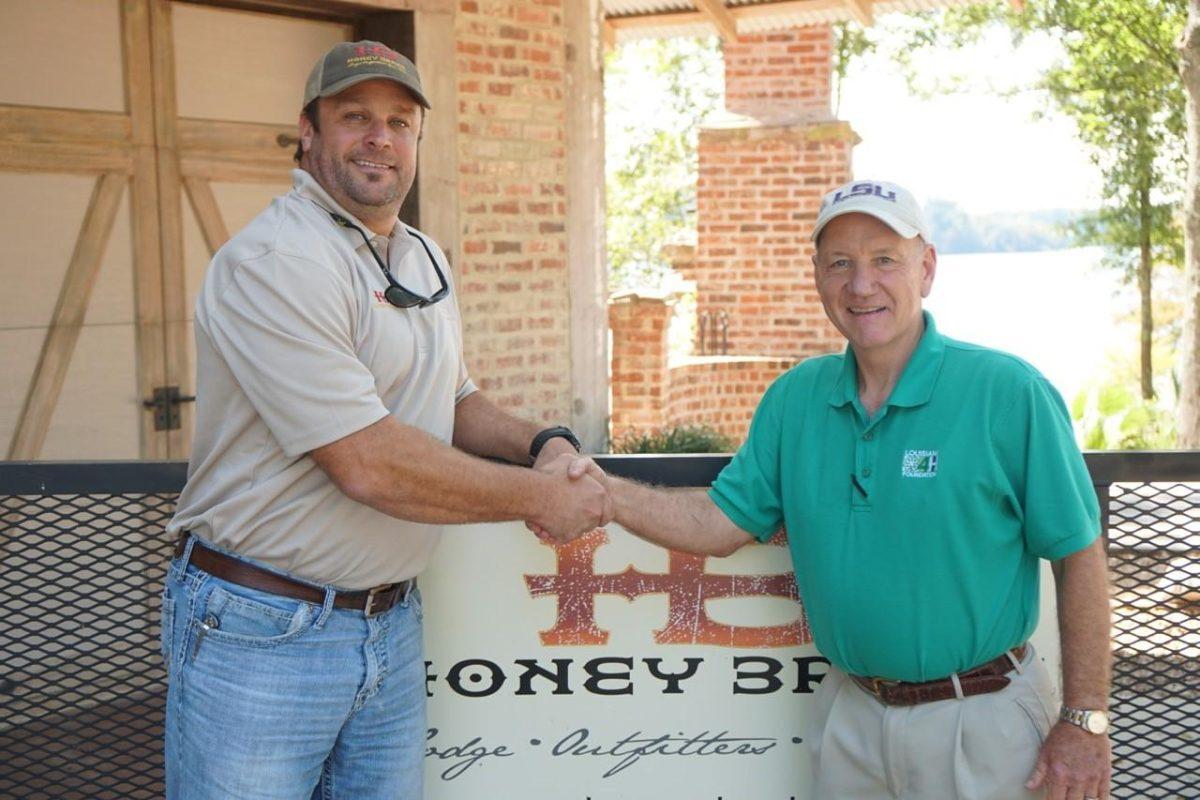The Louisiana 4-H Foundation recently received a pledge for the largest donation pledge in its history on Sept. 28 thanks to Honey Brake, a Jonesville, Louisiana, hunting lodge and wetlands restoration project.
According to Louisiana 4-H’s website, since 1908, then under a different name, 4-H has worked to teach young people invaluable life skills, originally research-based farming, and later expanding to topics such as photography, food preparation, web development, and public speaking, among many others.
Patrick Tuck, the executive director of the Louisiana 4-H, said the money will go toward camps and field trips for its members, allowing students from all over Louisiana to learn these skills and to meet and befriend other students their age. One of the most important things for people to do at their age is to meet new people and broaden their horizons, Tuck said.
4-H is dedicated to environmental conservation, life-skill teaching and community service, Tuck said.
“We do a community service program, a school gardens program,” he said. “The gardens that we work at schools and for parishes will actually donate the food from those gardens at the end of the school year to members of the community and food vendors. There’s so many things we do because 4-H focuses on what the child wants to do.”
That the children can pick community service activities and make a real difference in their communities is what makes 4-H so great, Tuck said. Seeing the effects of their efforts will make serving others a reality and serves as tangible proof that each person can make the world a better place, Tuck said.
Students who grew up in 4-H oftentimes want to continue their involvement as it becomes a part of their lives.
“We do have a collegiate 4-H club,” Tuck said. “It’s typically made up of students who have gone through the system from k-12, and come to LSU and now want to continue their experience with 4-H, so we have a 4-H collegiate club.”
Any information about getting involved with 4-H at LSU can be found at the AgCenter on campus.
But students who weren’t a part 4-H before college aren’t excluded from getting involved. Volunteering for events that 4-H puts on is a great way to help the community.
“The 4-H university in the spring brings 1,500 kids to campus,” Tuck said. “And we’re at the PMAC [Pete Maravich Assembly Center] all week long at the end of June.”
These events and more are good places for students to volunteer to work and learn how 4-H works.
Thanks to Honey Brake, more children will be able to get involved, and new activities and places to visit will become available to them, Tuck said. According to their website, Honey Brake has 20,000 acres of property in Catahoula Parish, which can be used for hunting, fishing, and bird-watching tours.
These kinds of activities are some of what 4-H seeks for its members, and Honey Brake’s donation will help expand the possibilities for what 4-H and its members can achieve, Tuck said in a press release.
Honey Brake makes historic donation to Louisiana 4-H
October 14, 2016





